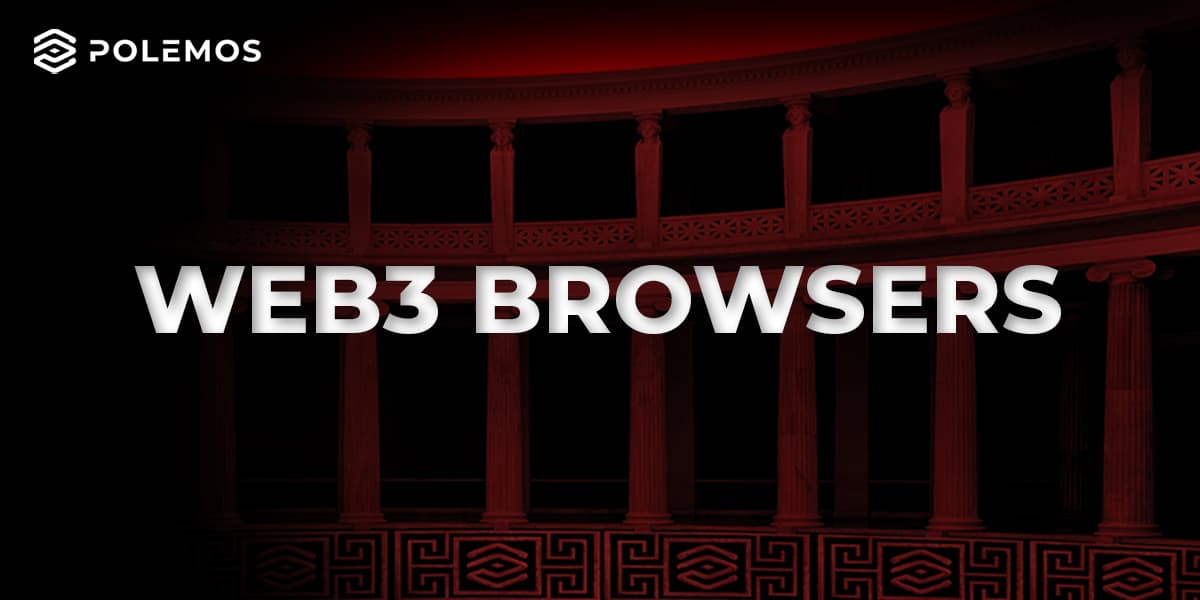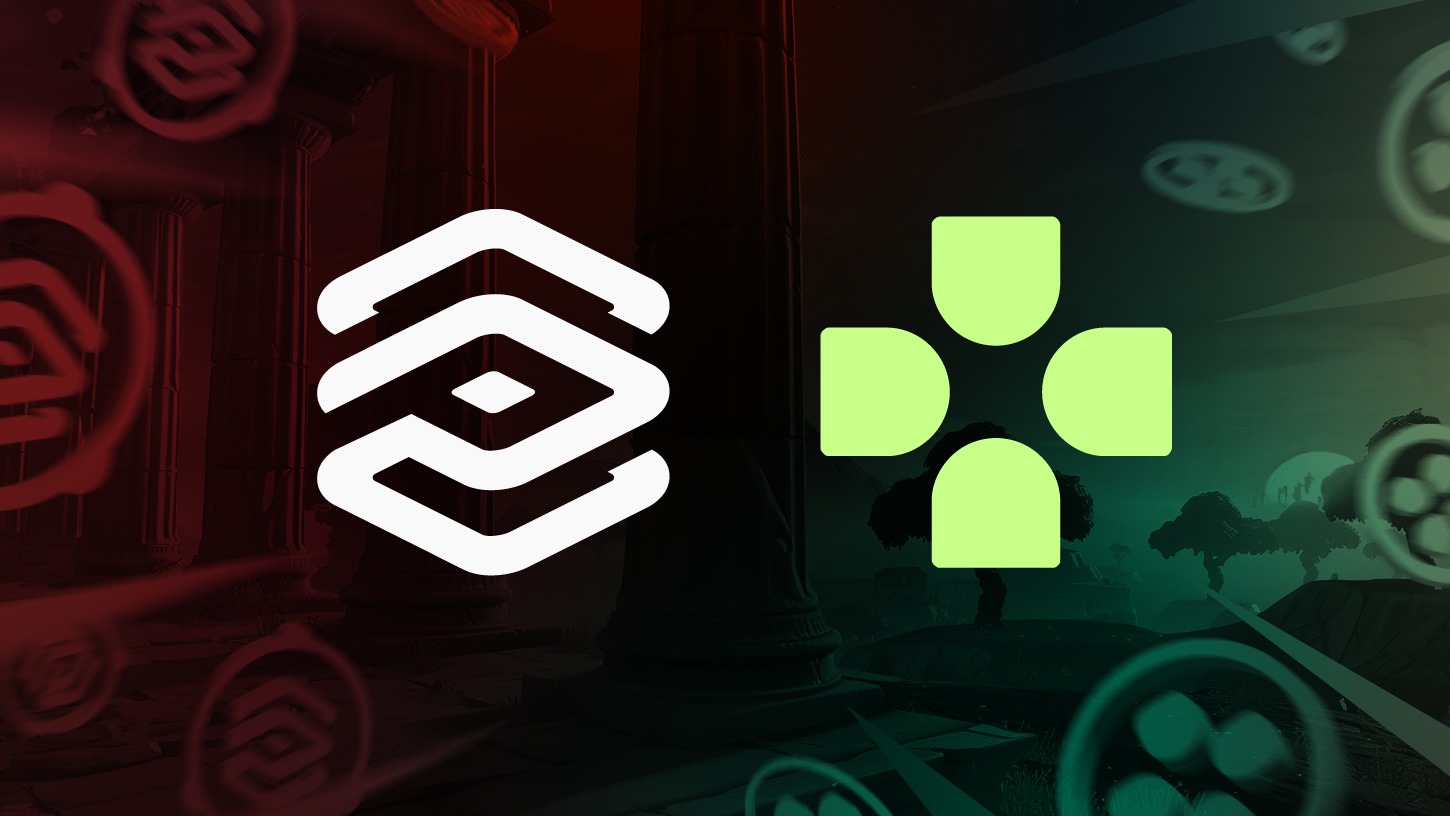Before jumping into what a web3 browser is, you might be curious about web3 as a whole… What is this whole trend? Is it that much different from web2?
To be honest, defining the “stages” of the web is somewhat impossible. For example, Wikipedia is considered a web1 project, while YouTube is a web2 product. At the core, the two share a similar underlying infrastructure.
In web3, it’s the same. We don’t have new programming languages, new file formats, new browsing modes, or anything that would redefine how the internet works. Web3 changes things on a more subtle level: the infrastructure.
The Web3 Infrastructure
A Web3 infrastructure relies on blockchain technology to share and fetch data from a decentralized set of nodes rather than a central entity such as Google or Amazon.
Just as with a web3 community, a Web3 browser aims to decentralize power from a few giant corporations back to the people who are using it. Decentralized servers, run mostly on blockchain protocols, host data instead of centralized servers that only the company has access to.
Although this might seem irrelevant to an average user, who holds the key to their data is a fundamental piece of their online experience. By owning what you produce, you become the sole proprietor of your content, and privacy is guaranteed. In web2 products, your product is always hosted on someone’s server, and that someone is never you.
Decentralizing the web
Regaining control of what we create online greatly benefits the end user. In the blockchain, anyone with access to the open ledger of information can verify the ownership of posts, items, and relationships.
In web3 networks, everything is available to anyone. Imagine it like Wikipedia, but for everything. Any tech enthusiast can access and analyze anything that happens on a blockchain, and most new Layer-1 blockchains are open-source, meaning they are replicable.
Web3’s main difference is not a specific coin or a set of apps but rather the ideology of decentralizing servers and databases for applications built on top of the blockchain.
Everything else, like cryptocurrencies and tokens, is a result of this revolution. Anything related to crypto mining and staking is a way to remunerate people for their effort to keep the web3 infrastructure running.
What Is a Web3 Browser?
A web3 browser is a web browser that rewards, enables, or produces web3 products such as crypto wallets, blockchain node validators, and decentralized applications.
Web3 browsers do not have a clear set of specifics, and the term “web3/ enabled” would fit their actual role a lot better.
Many common browsers today offer some sort of integration with blockchain-powered apps, commonly referred to as dApps.
Please remember that any browser with the ability to install Chrome or Firefox extensions can enable web3 products through wallet apps like MetaMask, Sequence, and many others.
Brave Browser
This browser is the most popular on web3. It includes a crypto wallet, several ways to earn free Bitcoin rewards from the internal token, BAT, and a donation system to give BAT to your favorite creators.
The parent company, Brave, is heavily involved in decentralization and supports many initiatives.
A few examples of these initiatives include Brave Ads, Brave Gaming, and Brave Search to get more people into blockchain-powered applications and services.
Brave Search, in particular, is their biggest success to date. With the ambitious goal to replace Google Search, the team hopes to provide a valuable alternative with open-source algorithms to determine rankings.
Brave browser comes with a fully functional crypto wallet included. You can hold, exchange, and transfer your crypto assets and NFTs. They will also reward you in BAT when you opt into the ads program.
Brave embodies the definition of what a web3 browser is and takes full advantage of new technologies and communities in the metaverse.
Pros
– Brave browser is completely free
– Backed by a highly reputable company with a proven track record of safeguarding users’ privacy
– Includes a fully functional crypto wallet
– Offers an alternative to Google Meet, which is incorporated in the browser and can be used for free for up to 4 participants
– Speedy and consumes less RAM than a typical Google Chrome installation
Cons
– All ads are blocked by default, which impacts your favorite websites negatively, especially if they run on ads
– Brave’s goal is apparently to “remove clutter” and provide an ad-free experience. However, their actual goal is to be the sole provider of advertising, considered unethical by some
– Doesn’t have any particularly attractive features other than those described above; a basic Chromium clone
Puma Browser
Puma is a mobile-only crypto-enabled browser developed in partnership with Coil, a membership-based reward program for creators.
Puma Browser gives anyone with a mobile phone the opportunity to have an integrated wallet connection (you can use your favorite wallet!) and a detector for Coil-powered websites.
Coil-powered websites give advantages to owners of the Coil membership. The membership costs $5 per month and will reward creators when a signed-up user consumes content on their website.
Puma is a great, balanced alternative to more popular browsers and includes fun little games each time you open the app.
Pros
– Very lightweight and fast
– Includes the Coil indicator
– Homepage features crypto and web3 news
Cons
– There’s little reason to use it if you’re not interested in Coil
– The company is tiny, and the app is not popular
Opera Crypto Browser
Opera Crypto Browser operates as a web3 browser and provides both the crypto-curious and crypto-savvy with a smooth, private, and secure Web3 experience. Opera Crypto Browser provides a unique and safe Web3 experience with features such as a secure clipboard, phishing protection, a malicious-address checker, and the industry’s first multi-wallet management tool: the Wallet Selector.
As a result of a partnership with WalletConnect and other major players in the space, Opera was able to launch the browser at the start of 2022 and become a massively popular alternative to existing players such as Brave.
Rather than connecting you to your own wallet, Opera has used a more decentralized option that allows you to connect any wallet you typically use.
By using Opera Crypto Browser, you also get all the benefits of the latest release of Opera. You will be able to interact with crypto communities in a slide-in fashion through Discord, Telegram, and many more.
Opera Browsers have always allowed in-browser apps; this feature is especially relevant for the crypto audience in particular. You can use Discord, Telegram, Reddit, YouTube, and many more apps without opening a new tab and on the side through a slide-in. It’s incredibly useful for multitasking while following your biggest passions.
If you’re specifically interested in GameFi, Opera also offers a specific set of features for gamers, such as an optimized browser to enhance your experience while playing web games.
Controversies Around Web3 Browsers
At the start of 2022, Vivaldi Browser publicly opposed the concept of web3 and cryptocurrencies. The founder, Jon von Tetzchner, wrote:
“When you strip away the hype, these virtual currencies have very real repercussions for people, society, and the environment. By creating our own cryptocurrency or supporting cryptocurrency-related features in the browser, we would be helping our users to participate in what is at best a gamble and at worst a scam. It would be unethical, plain and simple.”
It’s fair to assume neither Vivaldi nor mainstream browsers like Google Chrome and Microsoft Edge will come onboard anytime soon.
The plethora of dApps developed by experienced and passionate developers may skew public opinion in favor of crypto and blockchain in the future. The recently released Ethereum Merge dropped emissions by 99.5% and was a great initiative to start shifting public perception.
Web3 Browsers and Search
It’s essential to remember browsers are NOT search engines. The only browser in the list with a dedicated search engine is Brave.
A search engine scouts the indexable web for relevant results for your search query. The browser simply outputs whatever is in the code. It’s a compiler, not a program to fetch results from the web.
If you’re interested in alternative search engines that support and/or enable web3 and privacy-first ideologies, take a look at these:
– Start page
– Qwant
– Neeva
Wrapping Up Web3 Browsers
Web3 browsers add functionality to the market through multiple add-ons. Some even feature a VPN or a platform to host Decentralized Apps.
This revolutionary technology will help maximize your browsing experience, protect your online information, and preserve your decentralized identity (as well as decentralize the web in general).
Download the browser that best fits your needs. Regardless of what defines a web3 browser in principle, you should let your personal use cases directly impact which you choose. Built-in crypto and dApps are common across the board, so it’s mostly a question of which feels the most seamless for you.
Of course, as with most things digital, all browsers are free and easy to use. They also are either mobile-first or mobile-enabled. Did we forget to mention that? Now you know!
Have fun testing out the dApp of your choosing, or try them all if you’re a nerd like us!















